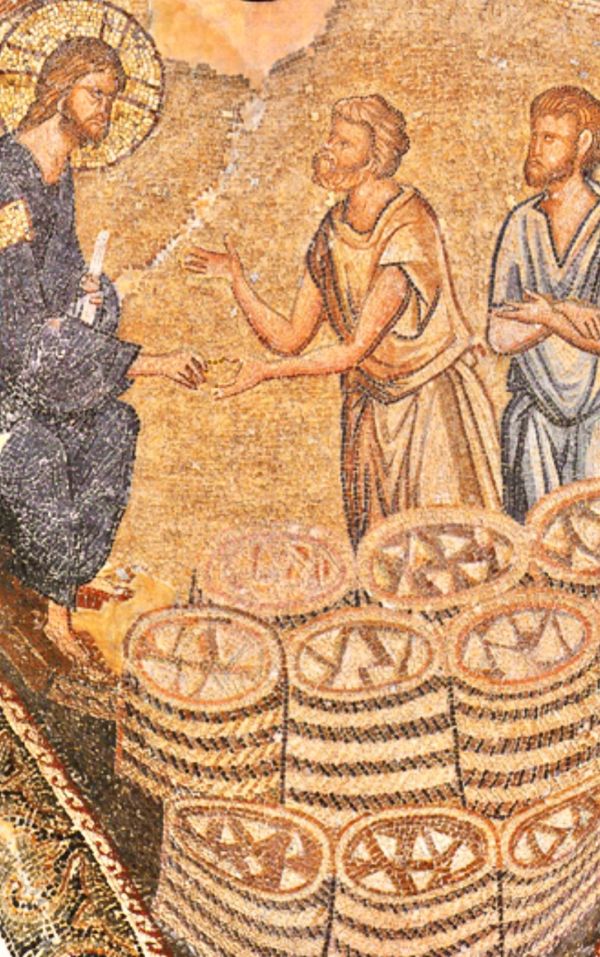Multiplication by Sharing
(Mk 6:34-44)
«Man is a limited being who is himself limitless» (Fratelli Tutti [Brethren All] n.150).
In our hearts we have a great longing for fulfilment and Happiness. The Father has introduced it, He Himself satisfies it - but He wants us to be associated with His work - inside and outside.
The Son reflects God's plan in compassion for the crowds in need of everything and - despite the plethora of teachers and experts - lacking any authentic teaching (v.34).
His solution is very different from that of all “spiritual” guides, because He does not gloss over us with an indirect paternalism (v.37) that wipes away tears, heals wounds, erases humiliations.
He invites us to make in person use of what we are and have, even though it may seem ridiculous. But He teaches in no uncertain terms that by shifting energies, prodigious results are achieved.
This is how we respond in Christ to the world's great problems: by recovering the condition of the man ‘viator’ - a passing being, her/his essential mark - and by sharing goods; not letting everyone make do (v.36).
Our real nakedness, the vicissitudes and experience of the many different brothers and sisters, are resources not to be evaluated with distrust, «viewing others as competitors or dangerous enemies» of our fulfilment (FT no.152).
Not only will the little we bring be enough to satiate us, but it will advance for others and with identical fullness of truth, human, epochal (vv.42-43).
The new people of God are not a crowd of chosen and pure people. Everyone brings with them problems, which the Lord heals - taking care not by proxy measures (v.37), as if from above or from without.
In short: another world is possible, but through breaking one's own (even miserable) bread and companion (v.38).
An authentic solution, if one brings it out from within, and by standing in the midst - not in front, not in charge, not at up high (v.36).
The place of God's revelation was to be the place of thunderbolts, on a "mountain" steaming like a furnace (Ex 19:18)... but finally even Elijah's violent zeal had to recant (1 Kings 19:12).
Even to women and men on the other side (vv.31-32) the Son reveals a Father who does not simply erase infirmities, but makes them understood as a place that is preparing a personal development, and that of the Community.
It was imagined that in the time of the Messiah, all the needy would disappear (Is 35:5ff.). ‘Golden age’: everything at the top, no abyss.
In Jesus - distributed Bread - an unusual fullness of times is manifested, apparently nebulous and fragile (v.38) but real and able to reboot people and relationships.
Our shortcomings make us attentive, and unique. They are not to be despised, but taken up, placed in the Son's hands and energised (v.41).
The same falls can be a precious sign; in Christ, they are no longer mere humiliations, but path indicators (vv.32-34): perhaps we are not using and investing our resources to the best of our ability.
Thus collapses can be quickly transformed into (different, unpacked) ascents and a search for total completion in Communion.
The image of the Kingdom in the puny Eucharist does not eliminate the flaw and death: it takes them up and transfigures them into strengths; by creating encounter, dialogue, predilection for the least realities - and New Covenant.
[Weekday Liturgy of 8 January]












